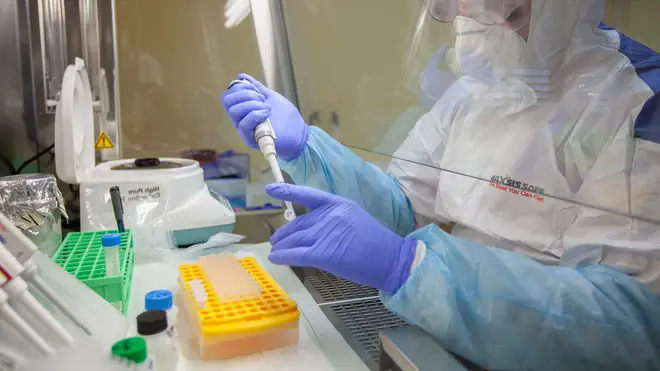
Iain Dale 7pm - 10pm
14 March 2020, 16:46

With coronavirus at the top of the news agenda, and the Covid-19 outbreak spreading across the globe, many people are asking what the virus is and how it might affect you.
Even though most people are referring to the outbreak of the current disease as coronavirus, what they mean is Covid-19/
Coronaviruses are a large family of viruses that cause illness ranging from the common cold to more severe diseases such as Middle East Respiratory Syndrome (MERS-CoV) and Severe Acute Respiratory Syndrome (SARS-CoV), according to the World Health Organisation.
But Covid-19, of Wuhan coronavirus as some call it, is a new strain that was discovered in 2019 and has not been previously identified in humans.
Coronaviruses are zoonotic, meaning they are transmitted between animals and people. Detailed investigations found that SARS-CoV was transmitted from civet cats to humans and MERS-CoV from dromedary camels to humans. Several known coronaviruses are circulating in animals that have not yet infected humans.
Read more: How long does Covid-19 live on surfaces? Is post from China safe?
According to Cambridge University is a central concept in public health.
Meaning when a sufficiently large percentage of a population is inoculated against an infectious disease, the population as a whole is better protected against the disease because the immune individuals no longer serve as carriers or spreaders of the disease.
Basically, this means they are unable to infect at-risk individuals.
Read more: Coronavirus symptoms - What are they and what is the risk of Covid-19 in the UK?
Common signs of infection include respiratory symptoms, fever, cough, shortness of breath and breathing difficulties. In more severe cases, an infection which can cause pneumonia, severe acute respiratory syndrome, kidney failure and even death.
Read more: Coronavirus: Beard sanitiser sales spike after NHS urged staff to shave
Read more: Family self-isolated due to 'people’s fears' over coronavirus
Standard recommendations to prevent infection spread include regular hand washing, covering mouth and nose when coughing and sneezing, thoroughly cooking meat and eggs. Avoid close contact with anyone showing symptoms of respiratory illness such as coughing and sneezing.